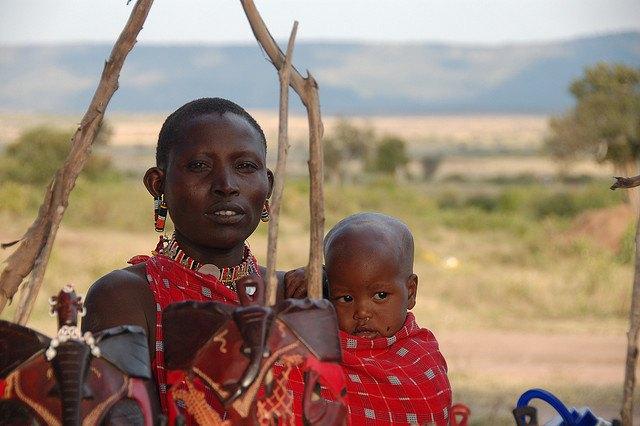
Indigenous rights and risks continue to gain attention these days, and no wonder. Global warming and land rights conflicts with industrial operations both continue to impact Indigenous people's rights and way of life, according to a new report released by First Peoples Worldwide.
The Fredericksburg VA-based organization, which was started by Cherokee social entrepreneur Rebecca Adamson, looks at the impact of companies and government polices on native peoples worldwide. Their first report, released in November 2013 highlighted the fact that native communities in all nations surveyed faced some type of risk to their land and cultural way of life when industries like oil, gas and coal mining opened operations on or near their indigenous lands.
This year's report, released last week, looked at 330 extractive industry projects across the world and their impact on the regions' native communities.
Indigenous populations affected by the extractive industry projects were scored according to the protections afforded to them by their governments. Legislation, proactive government efforts and legal recourse were among the factors that led to the scoring. To achieve this, the researchers scored the country on four independent points: i) regional and national recognition ii) land rights, iii) decision making, and iv) civil liberties.
The research also looked at the kinds of extractive processes underway, such as the Keystone pipeline in the U.S. versus mineral mining impacts in Chad and the companies in charge of those extractive projects. It evaluated the companies' reputation for protecting indigenous rights, its willingness to engage in dialogue and the level of risk that the company's operations and approaches posed for local native populations.
The outcome provides a glaring picture of the risks that native populations face today when it comes to extractive operations, particularly in countries where indigenous populations have not yet been recognized. Some of the interesting outcomes of the study include the fact that Colombia had a relatively high rating when it came to recognition of native peoples, but a poor rating when it came to their right to consultation and their ability to exercise civil rights. Under the current government regime, Bolivia on the other hand, recognizes its native populations, affords them moderate rights when it comes to their land and civil rights, but restricts their rights to consultation in issues that affect their lands and privileges.
But the most interesting of all, were the ratings afforded to the U.S. and Canada, which scored the U.S. native populations at a lower risk percentile than Canada populations, even though Canada recognizes its indigenous peoples as First Nations with separate negotiable treaty status, and a strong voice in government regulation. According to this study, the United States affords more civil rights and a higher level of consultation to its indigenous populations than Canada currently accords its Aboriginal peoples.
The report also sheds an interesting light on which corporations have opened their doors to dialogue since last year's report. According to the report, some of the winners are ConocoPhillips, EOG Resources, Occidental Petroleum, Southwestern Energy and Spectra Energy.
You may recall Southwestern Energy as the company that had attempted to open extractive operations in New Brunswick last year and found themselves embroiled in a conflict with the Elsipogtog First Nation. The company had gained government approval, but local populations felt they had not had a say about issues that affected their community.
Unfortunately, the majority of the corporations studied by First Peoples Worldwide have not yet been willing to engage in dialogue with native community representatives. This report, which hopefully will continue on an annual basis may help encourage that. Proactive dialogue like that now undertaken by Southwestern Energy helps save money and company resources, as well as protect the livelihoods and cultural integrity of native peoples.
Image: Dylan Walters
Jan Lee is a former news editor and award-winning editorial writer whose non-fiction and fiction have been published in the U.S., Canada, Mexico, the U.K. and Australia. Her articles and posts can be found on TriplePundit, JustMeans, and her blog, The Multicultural Jew, as well as other publications. She currently splits her residence between the city of Vancouver, British Columbia and the rural farmlands of Idaho.














